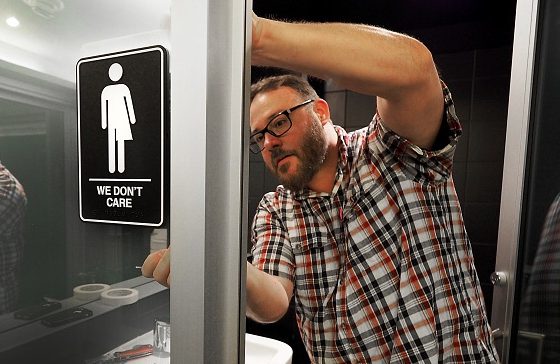First, the facts.
In North Carolina, we don’t hide our eccentricities. Sometimes, we elect them to office. But even we were shocked in March when state lawmakers convened a special session at a cost of $42,000 to discriminate against the entire LGBTQ community.
At issue was a local ordinance passed by the city of Charlotte that allowed transgender persons to use the public bathroom of the gender with which they identify. It only affected people living and visiting Charlotte.
